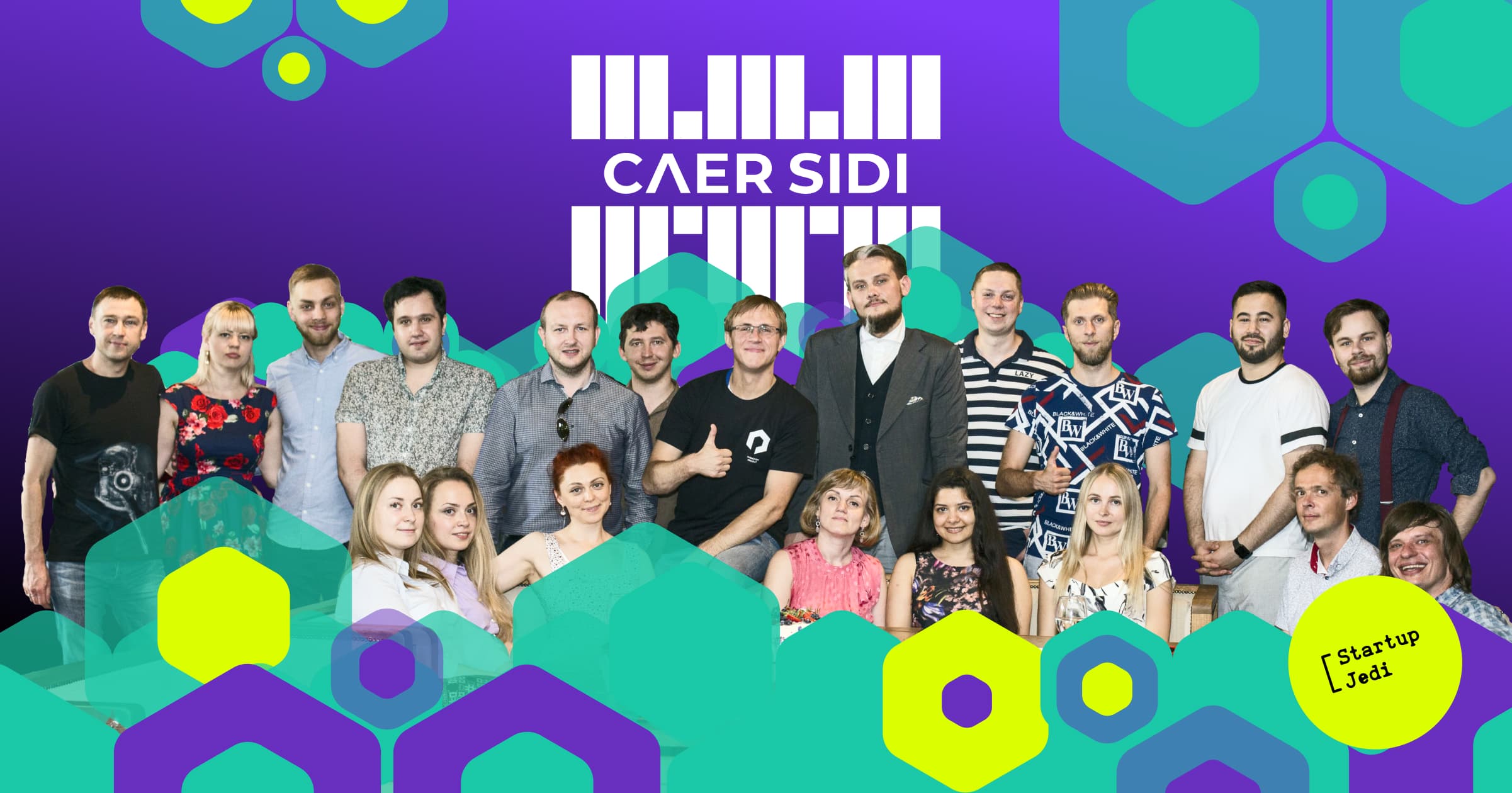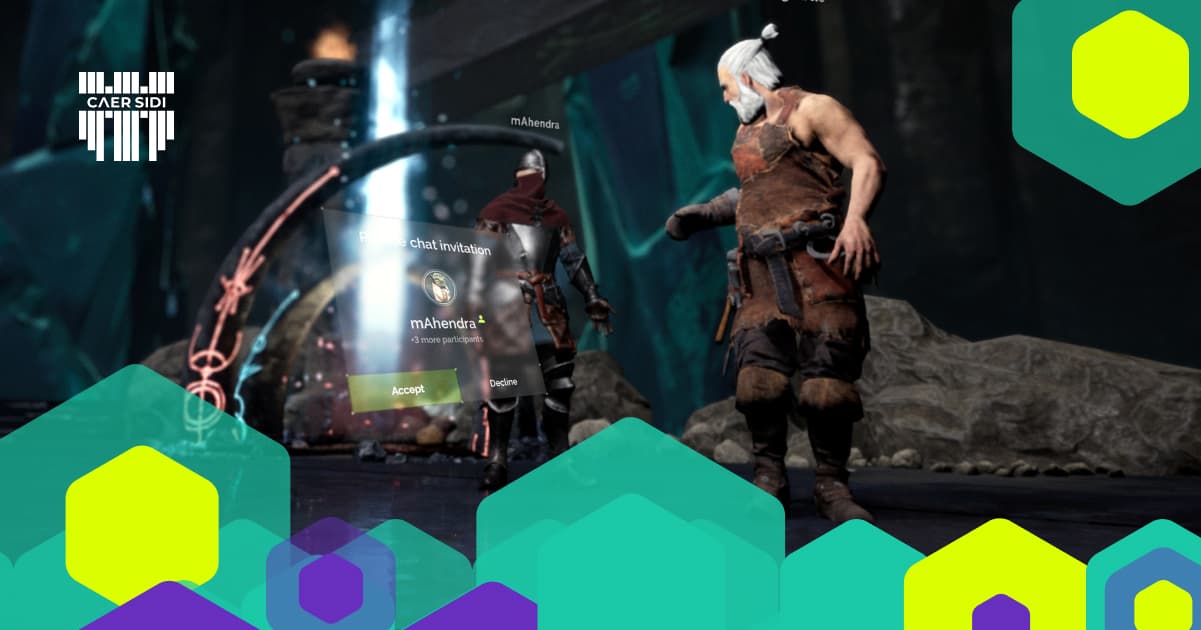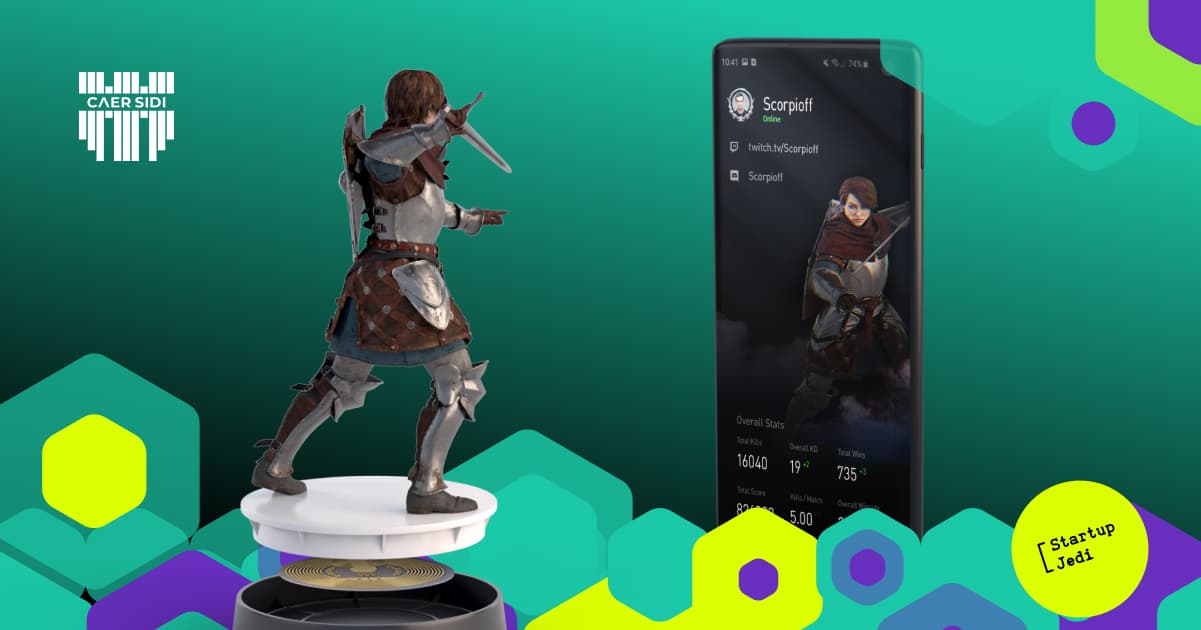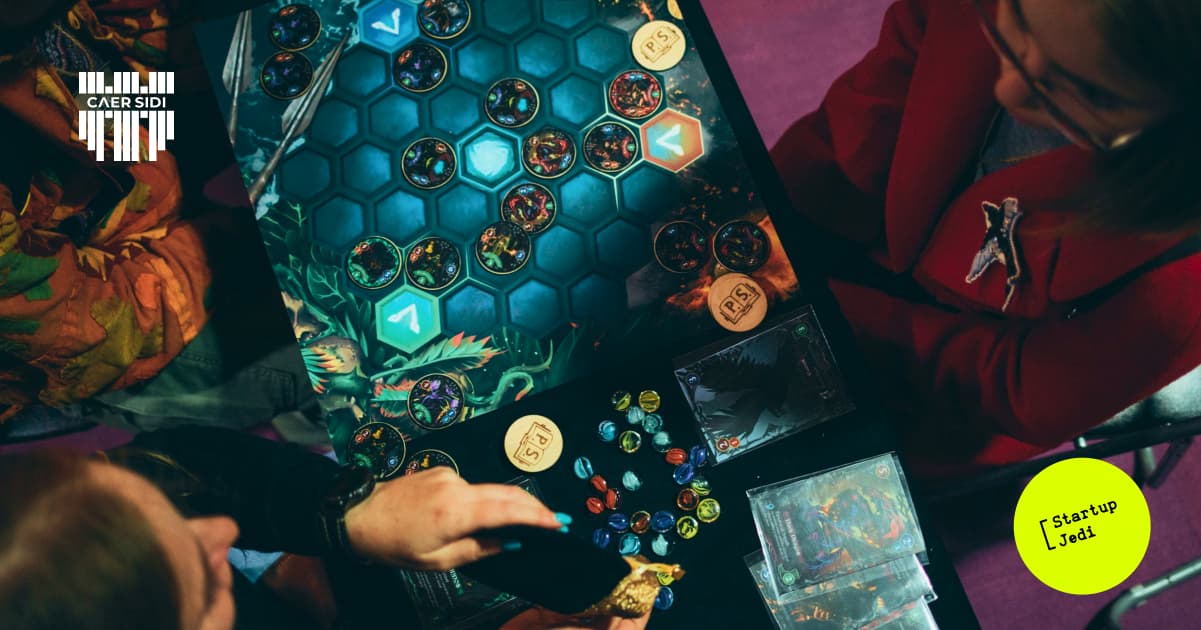
Startup Jedi
We talk to startups and investors, you get the value.
In 2018, only on Amazon, eBay and AliExpress people bought 614 million figures of game characters. Add to this sales volume of the gaming merch on the game developers’ websites, festivals, fan shops and communities. We will have a market worth of 60 billion dollars, which grows 15% a year. And what if objects of the real world connect with the characters, armor and gadgets — in the virtual world?

Startup Jedi
We talk to startups and investors, you get the value.
All parties are interested in such connection of the online and offline worlds. Developers can make more money, retaining gamers in their games way longer and selling them unique artifacts. Gamers would be able to welter in the universes of strategies, “adventure”, “shooters”, quests and races. And protect their accounts and artifacts from theft.
Belarus-Ukrainian startup Caer Sidi is doing this very thing. Guys are making a cross-real ecosystem, which will combine the mechanics of online games with offline objects. Pavel Shlapak, the CEO of the project, told Startup Jedi about the startup and the connection of two worlds.
...
Imagine, you have an object, which is a digital copy in a computer or a mobile game, VR-space, or on all these platforms. It can be a hero’s figure, a pendant, a bracelet, boots, a car, a red gun — anything. An NFC-chip is installed in this object. When you hold a smartphone near it, unique gaming content is activated in your gaming account. Usually, it is a digital copy of the objects, you scanned. It is enough to scan a chip of toy-tank and it is in your virtual garage. In essence, it is merch 2.0, the next generation.
A technology transfers information from a game into a figure as well. Hover a smartphone on it — AR-system scans and identifies the object, displays current statistics and walkthrough progress on the phone.
A database works on Tangle — an alternative version of a distributed ledger. Alternatively from a blockchain, it has more possibilities of scaling. It cannot be hacked, and history cannot be overwritten. Even if a physical object, the chip of which you have already scanned earlier, is stolen from you, a thief will get nothing in the game — the asset will not be duplicated in his account.
Tangle also guarantees that you bought a true original merch, not a fake one. It is important when collectibles are produced in limited series. In the world industry, there are held about 20 cybersport major tournaments. Teams present a limited edition of different merch for every event, which is in good demand among fans. Caer Sidi provides a tool to prove the authenticity of these things — to prove that this is exactly the same merch, from that very tournament, from that very team. The service even allows you to prove that this particular hoodie was worn by a famous cyber-sportsman.
Thanks to the Caer Sidi service, phygital (physical+digital) objects became available even for small and medium gaming companies, and not only for corporations.

...
You won’t be able to translate it from English. In Welsh mythology, Caer Sidi defines a mystic fortress and a portal that connects all Universes. Our service is created by analogy with this fort, connecting the real and virtual worlds.
We have a digital Caer Sidi Hub — it embodies a fortress from legends. It can be accessed from a simple PC or with the help of VR tools. There you can create a trophy room and launch games directly from the Hub.
At first, in general vision for 3–4 years we set “Oasis” from “Ready Player One” as a landmark. We do not leave this idea, but so far more focused on the other. Most of our team are gamers, so we know for certain: it is very important for the players that the real world also gives an additional immersion in their favorite stories.
...
Our solution is interesting to many companies, but we do not agree to work with all of them. We are not tart-tempered, the thing is that our main goal is to increase the inside-game monetization. This we can do only with a specific minimum number of gamers and the minimum level of the company’s income. Technically, we can provide our technology to any game but noticeable profit will be seen only with 100 thousand and more active users per month.
We do not have strict preferences in game genres, those are mostly MMORPG, MOBA, strategies, online-shooters. But it is not crucial, important are the audience and the great variety of content which can be materialized in merch.
This technology even works in board games. The most interesting genre here is D&D — games, in which focus is on the hero, not on the play-field. Now it may seem banal and archaic. You have a hero’s figure and the characteristics are changed after each game. Here everything is built on trust and honesty: the change of characteristics players note down on a piece of paper. So, here you are, a gamer in the 21 century, who plays a game with a figure and a crumpled up piece of paper.
Caer Sidi has a feature of creating a virtual ID for this figure based on the technology of distributed ledger — all characteristics will be recorded in it. In simple amateur games, the player is the one who will fill the data in cloud storage. On the professional tournaments, this will be done by judges, who will also record the result in a protocol — no room for cheating. Such a decision far outweighs the collectors’ value of the gaming figure.
We received positive answers from such companies as Tencent, Focus, Amazon Games, Bandai Namco, developers of cross-reality board games. Wargaming is also highly interested in cooperation with Caer Sidi, it is a developer of World of Tanks: our solution perfectly suits their product.
We are working on the enlargement of digital content on our platform. We have signed a contract with G2A. It is a game digital distribution service, second-largest after Steam. The contract with G2A will give us an immense content flow to Caer Sidi. Now our specialists are working on technical implementation.
The communication with our partners is smooth. People see the potential of the idea, and besides, we have a very convenient method to start cooperation: Caer Sidi does not take money in advance for the produced but not sold items. We work on the principle of revenue sharing.
Our offer readily fits into existing plans of developers. Most often, companies have planned regular updates of skins, characters, locations, which can be bind to our merch. It can be a limited edition or a large series.
However, we are not just producing merch 2.0, we are creating an ecosystem. The most difficult part starts after the product is ready — we have to chip it correctly, collate the content, receive payments, check the delivery, manage customer support… Game developers want to receive additional profit from it, but usually, they don’t want to spend resources on it.

...
Germany is the main market for us. There we have a formed community and many ambassadors, thanks to the co-founders’ connections. Among European countries it is Germany that spends the biggest sums on games and merch, ranking the second in the world after the US.
Apart from Germany, in Europe we are interested in the markets of Scandinavia and Great Britain: they are advanced not only relating gaming but also, in the fintech industry. In CIS we plan to find new partners as there are many strong developers, and our top managers have good networking in the region.
Surely, we are interested in the Asian market, we plan to expand on China. In the USA we will present our service a bit later when we will work out a business model in other countries and process the necessary legal basis.

...
Recently, we won at Startup Training Camp held by Rocket DAO. We liked the concept, as it is not a simple startup pitch battle but a complete program, which is more effective both for startups and potential partners. For Caer Sidi, it was a possibility to ensure in the strengths of the project, and also, a chance to tune up the communication with investors, as we are on the stage of searching the smart-money.
Participation itself helped us to work out the blocks connected to the market, business model and product that we offer. During the Camp, we reconsidered positioning, focused on a specific segment, which is much more efficient to work with. We even did the rebranding. Now we are getting to the new level in communication with clients and potential investors. All told, we got a significant boost.
The number of games, that released merch 2.0 on our platform is still counted in a few companies but we started active onboarding only in September. Soon, we will draw up contracts with major industry players and will be able to tell about them.
Now, both technical and business plans are aimed at attracting new game developers. They have different functional possibilities: some are ready to give us API, others — no. We are finalizing the mechanics of activating codes on NFC-chips inside the platform
We are really interested in potential cooperation with legendary games like S.T.A.L.K.E.R. 2, creations of Hideo Kojima or projects with famous personalities like Keanu Reeves in Cyberpunk 2077. But the most important current task for us is to finish onboarding of the existing clients.
A large field for testing hypotheses and experiments — game accessories shop, the inner trading platform of Caer Sidi. We consider the possibilities of direct assets’ sells between players. In this case, all transactions with items will be recorded in the distributed ledger. And the history of owners will be saved the same way as gaming statistics. You have bought a virtual plane from James Smith? It will be recorded in the ledger, that you are the second owner.
Participants can track the origin and owners history of any product. It is important: if your asset belonged to a famous player or streamer, the collectors’ value of such item significantly increases. And you can surely prove it.
Facebook: facebook.com/StartupJedi/
Telegram: t.me/Startup_Jedi
Twitter: twitter.com/startup_jedi
Comments